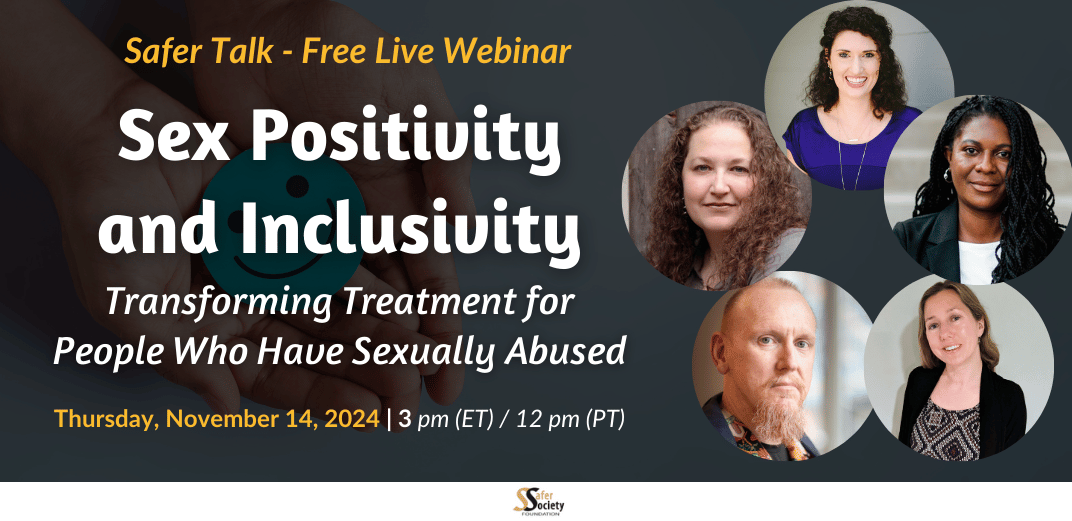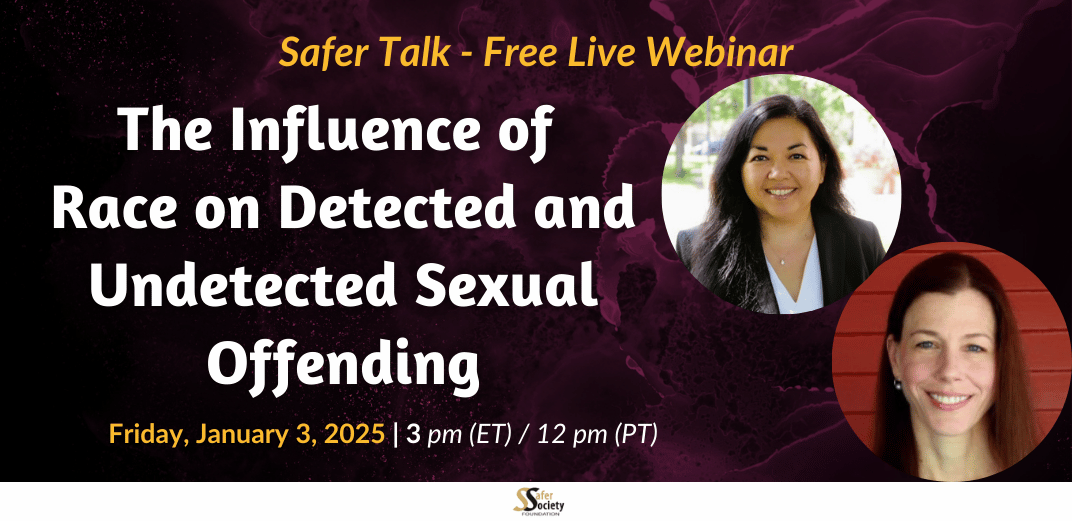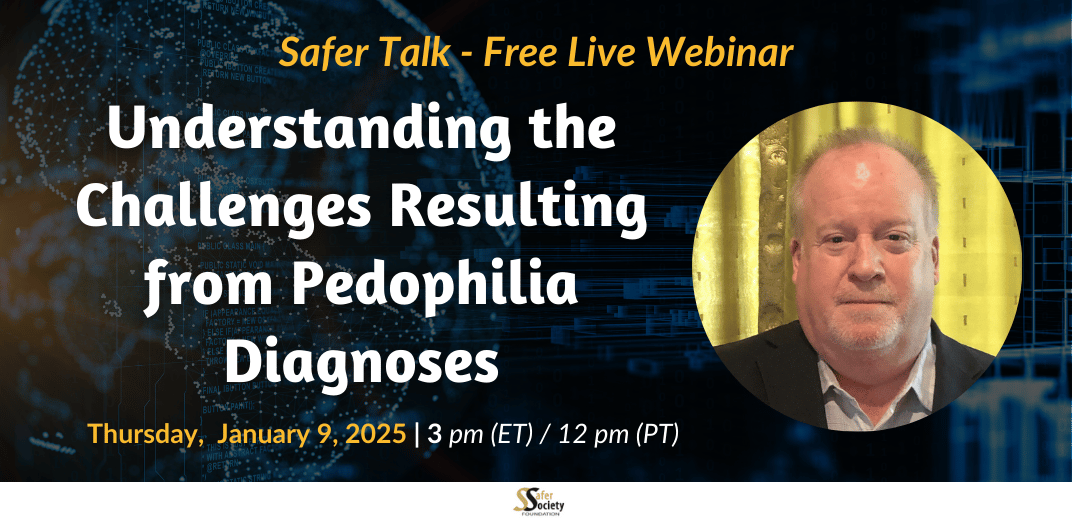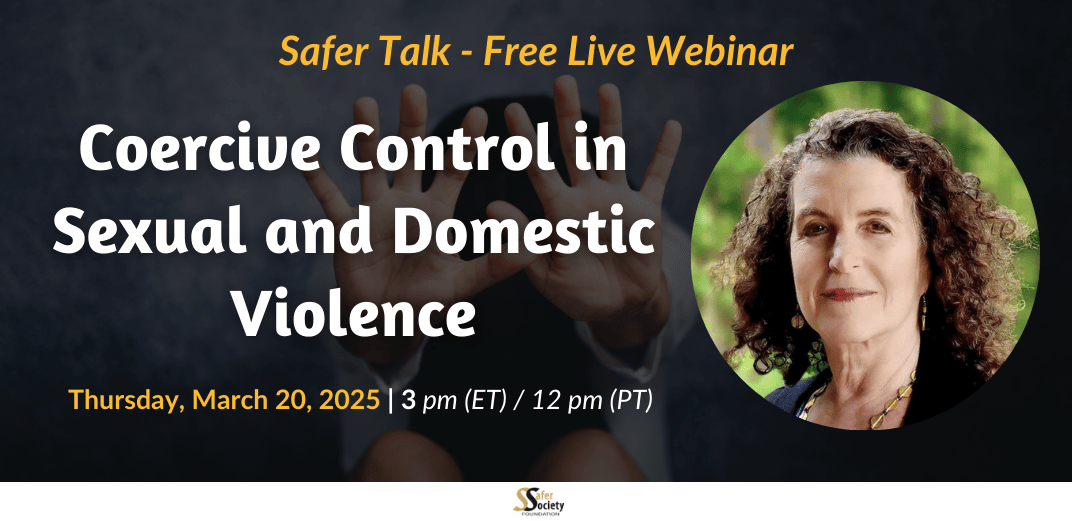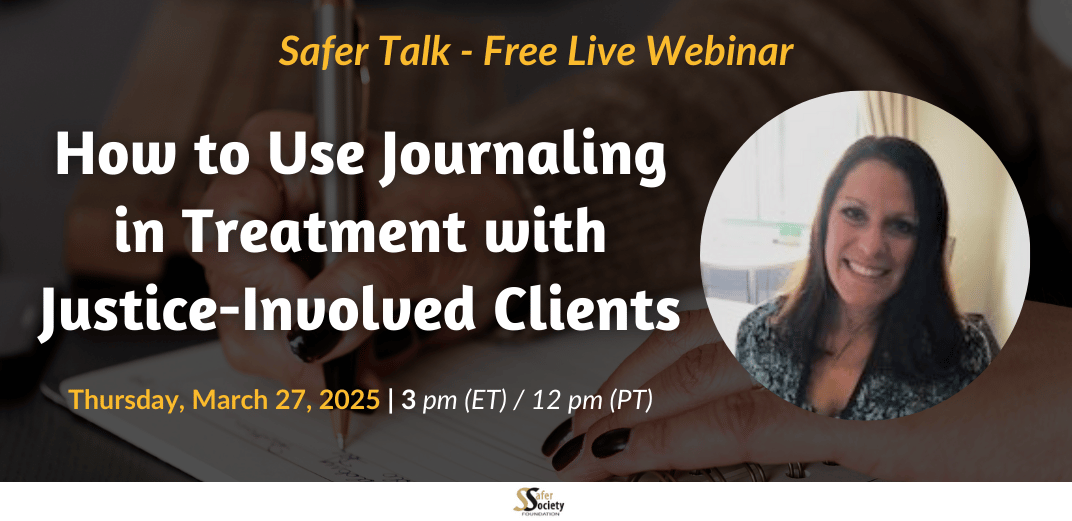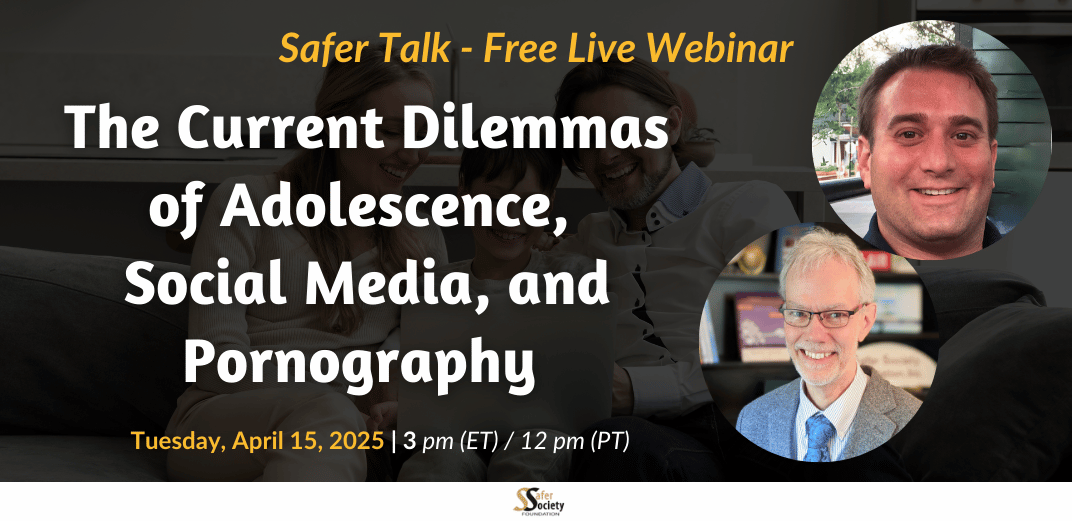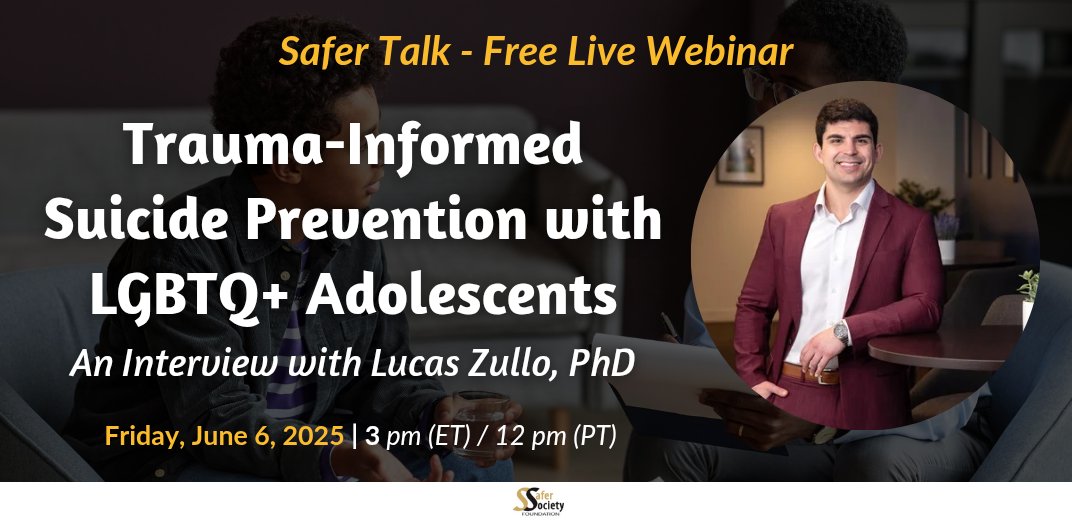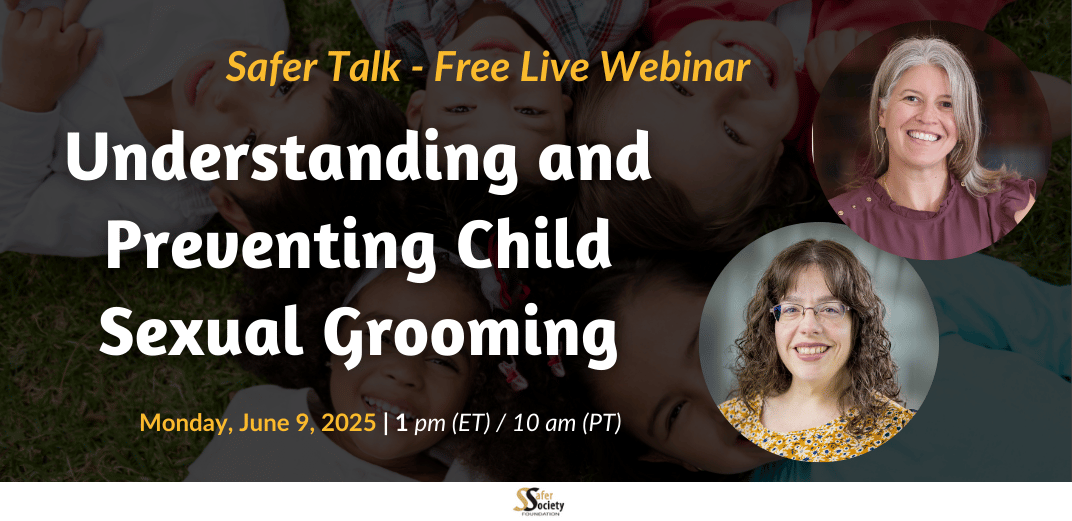Sex Positivity and Inclusivity: Transforming Treatment for People Who Have Sexually Abused
During this 90-minute webinar, a panel of nationally recognized experts explores the principles of sex positivity and inclusivity in therapeutic contexts, advocating for a non-judgmental attitude toward mutually consenting sexual activities.
This discussion:
- Underscores the need for an individualized assessment and understanding of each client.
- Explores how and why a purely abstinence-based approach to the management of sexual urges and impulses is less likely to be effective.
- Provides an open dialogue about how “taboo” or “deviant” topics, paired with education and normalization, can help patients address and manage their risks more effectively.
By promoting sex positivity and inclusivity, clinicians can work towards reducing stigma and shame while still addressing potentially risky behaviors. In fact, the principles upheld by the kink community—communication, safety, and consent—offer valuable insights that can enhance these therapeutic interventions.

